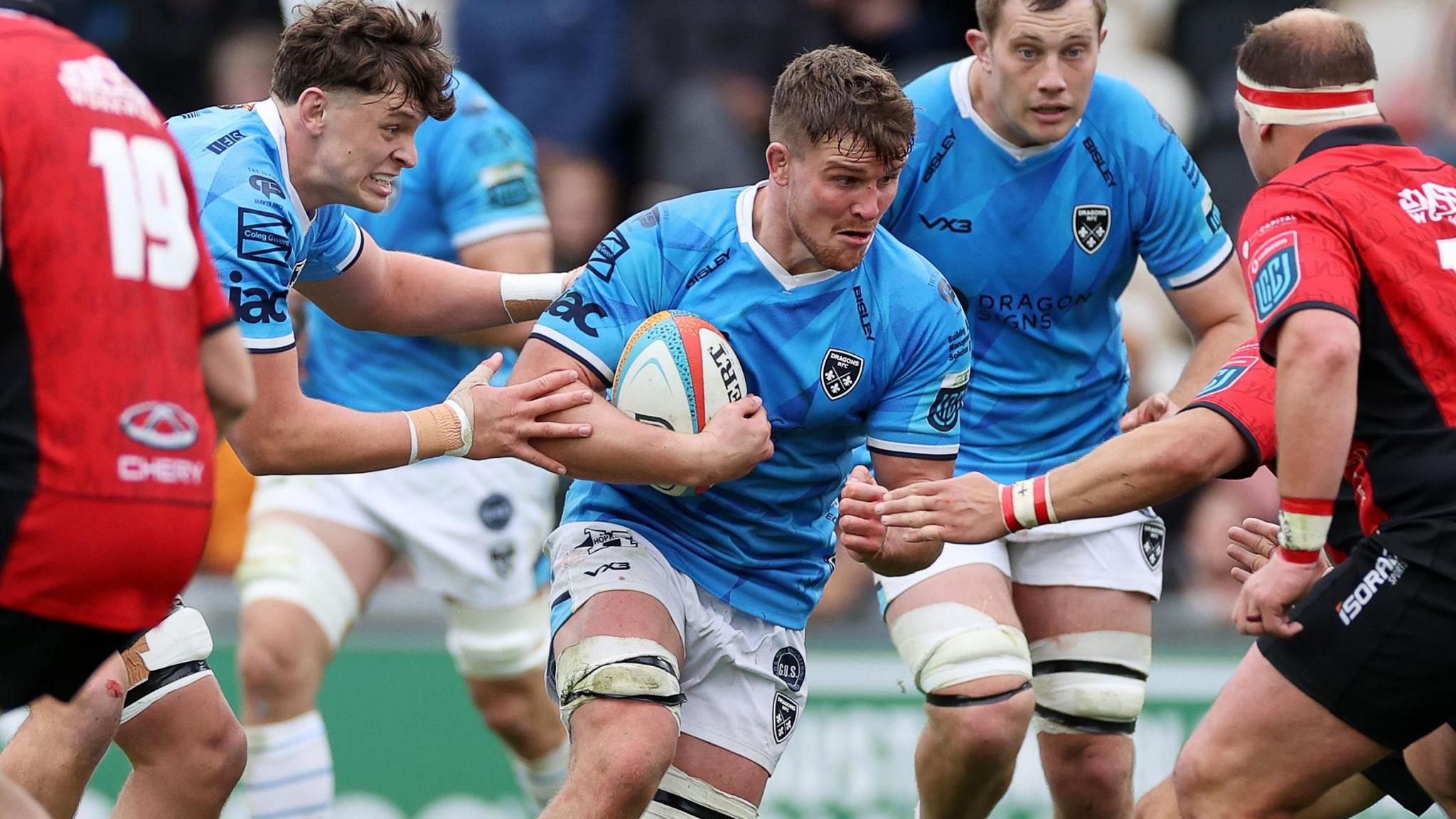Dragons' Lewis-Hughes undergoes finger amputation

Back row Shane Lewis-Hughes made the switch from Cardiff to Dragons at the start of the 2024-25 season
- Published
Dragons back row Shane Lewis-Hughes has undergone surgery to amputate the ring finger on his right hand.
The 27-year-old from Pontypridd first experienced issues with his finger in 2016 after his hand got stuck under a set of studs during training.
He returned to training but over time experienced deterioration in his finger from the knuckle upwards, and in 2020 he made the decision to have his finger fused while undergoing a separate operation on his shoulder.
Lewis-Hughes continued to have severe issues with his hand and planned to undergo amputation at the end of the 2024-25 season.
But after a severe increase in pain during Dragons' game against Connacht in October, and after a discussion with team physios and coaches, a decision was made to bring forward the surgery.
"During a contact sport you have to grip stuff and you're constantly catching and stubbing it on everything," Lewis-Hughes told Dragons RFC TV.
"It got to a point where it was affecting daily things in life like opening a cupboard or smacking it.
"The pain is just unbearable, the only way I can describe it is like really bad toothache and someone is just constantly stabbing it, pins and needles shooting up my arm and it affects my sleep.
"I couldn't grip anything properly and anytime I went in for a 'jackal' the pain was horrific and it had a massive impact on my performance."
Basham landmark as Dragons ring changes for Europe
- Published6 December 2024
Dragons flanker Griffiths retires
- Published3 December 2024
The amputation means several weeks of recovery and rehabilitation for the back row, but keeping the finger could have led to further infection that may have resulted in the risk of losing his hand or whole arm if the infection was uncontained and spread.
"It will actually have a massive impact on my life going forward, I won't be in pain anymore and I'll be able to do my job properly and not have to worry about catching it or stubbing it," Lewis-Hughes added.
"It's either have it off or I will not be able to play rugby any more.
"I'm hoping for three to four weeks return to play and then get back to playing my best rugby so I am really looking forward to that."